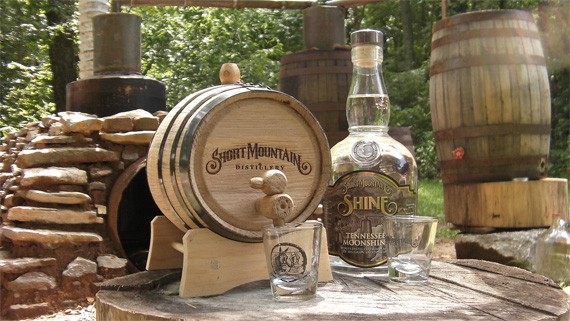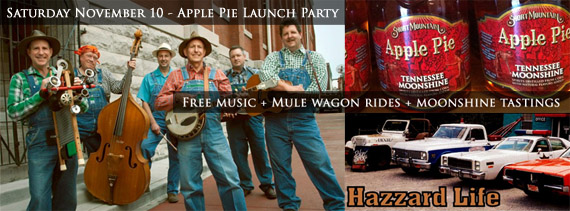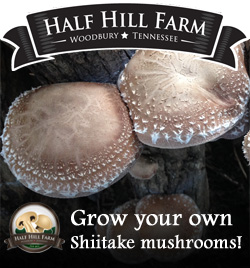Farm hour: becoming a USDA Certified Organic farm

soil samples from four sections of the farm
It’s Winter. There isn’t enough light in the day when we get home from work to do much on the farm, so we’re taking a 15 hour online course from the Rodale Institute to apply to become a USDA Certified Organic Farm. Every night’s a school night until the days get longer.
We’re learning a lot. Even if you don’t plan to become certified the program is a wealth of information to suppliment and reinforce your interest in sustainable farm practices. One of the most important things I’m learning about is building soil fertility and conservation. It’s also required by the federal government for certified producers to have plans in place to achieve that, such as amending the soil with composts and both animal and green manures as well as using cover and rotational crops.
Hour by hour – we’re hoping to have a decent Organic System Plan hammered out this month for our farm’s application. One of the first steps was to get a baseline measurement of our soil, so I took samples from four sections of field (each section with a few sample points) and sent it off for testing through the local Farmer’s CO-OP. I can’t say for sure, but the soil looks amazing. We’ll see what the test says.






 Cage: I’m testing fencing one tree after
Cage: I’m testing fencing one tree after 


 Noah let me borrow his truck. We may have enough mulch to last 2 years now! Tim gave us the pine needles we needed to keep the blueberries happy. Len let me hop the fence for the cow manure our compost piles needed to come to life. Benny did the same, letting me drive all over his farm shoveling up horse manure. It all adds up to tons of help, literally.
Noah let me borrow his truck. We may have enough mulch to last 2 years now! Tim gave us the pine needles we needed to keep the blueberries happy. Len let me hop the fence for the cow manure our compost piles needed to come to life. Benny did the same, letting me drive all over his farm shoveling up horse manure. It all adds up to tons of help, literally. Heat is a natural byproduct of all the biomass interactions breaking down the pile. A hot pile can be around 160 degrees for a few days.
Heat is a natural byproduct of all the biomass interactions breaking down the pile. A hot pile can be around 160 degrees for a few days.
 The orchard “mulchery” is set up. It’s 20 feet long, five feet wide and about 4 feet tall. If half the space is used, that should be 200 cubic feet of mulch. We added about 80 cubic feet of compacted, harvested leaves to use throughout the winter and started a pile with some of them today in the middle bin.
The orchard “mulchery” is set up. It’s 20 feet long, five feet wide and about 4 feet tall. If half the space is used, that should be 200 cubic feet of mulch. We added about 80 cubic feet of compacted, harvested leaves to use throughout the winter and started a pile with some of them today in the middle bin. What’s Possible? I measured the space and determined if we use the entire space for blueberry bushes and apple trees, we’re looking at around 175 blueberry bushes and 32 apple trees. Using non-organic yields, the potential looks like this:
What’s Possible? I measured the space and determined if we use the entire space for blueberry bushes and apple trees, we’re looking at around 175 blueberry bushes and 32 apple trees. Using non-organic yields, the potential looks like this:




